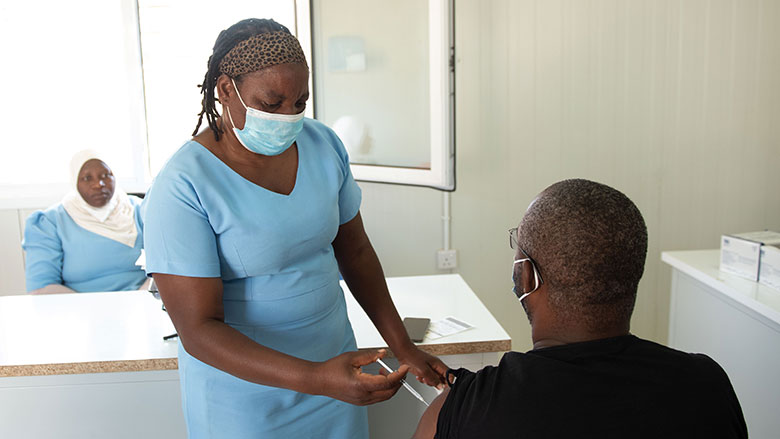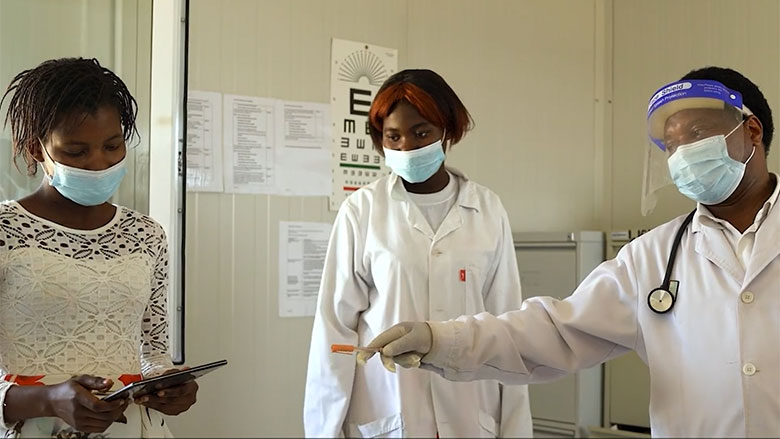LILONGWE, October 19, 2021— One early morning in August, Priscilla Pahuwa walked into St. Montfort hospital in Nchalo, Chikwawa District, to get the COVID-19 vaccine. She was eager to receive the vaccine and finally protect herself and the ones she loves from the potentially devastating effects of the coronavirus. However, getting to this moment, along with two of her close friends, meant overcoming many barriers that could have made her stay home. When her turn came, the health worker briskly administered the vaccine in a virtually painless experience that lasted all of 20 minutes, allowing the three friends to quickly leave the facility, ready to move on with life.
Working as a receptionist at the Masintha Lodge in Nchalo made 21-year-old Pahuwa realize the importance of getting vaccinated against COVID-19 despite various myths and misinformation circulating in Malawi and beyond. Due to the nature of her work and the risk of COVID-19, she decided to use the opportunity of the available and free vaccines in the country's health facilities.
"As a receptionist, I meet a lot of people every day from different areas who come to seek accommodation at this lodge. This is a risk in itself and therefore, I had to protect myself,” said Pahuwa.
She also believes that her uncle survived COVID-19 because he was vaccinated. “When he got sick, his symptoms were mild. He did not even require oxygen, and this is because he was vaccinated,” she said.
"After seeing him recover, I promised myself to go to the hospital to get the jab, which I did in August. I must admit, it was the greatest decision I have ever made and since that day I have been advocating for others to get the vaccine, some of whom have been receptive and done so."
Addressing vaccine rollout challenges in Malawi
The same day that Pahuwa and her friends went to get the vaccine, her friends ultimately refused it, citing fear of side effects. They are yet to be vaccinated. Many more people like Pahuwa’s friends are slowing down the COVID-19 vaccine rollout in Malawi.
The target of vaccinating 60% of the population by December 2022 remains a challenge, in part due to vaccine hesitancy, but also because of the limited quantities of vaccines and slow uptake by the eligible population due to misinformation. Vaccine hesitancy is mainly driven by misinformation, including the myth that the vaccines will lead to infertility.
Pahuwa added that health workers need more resources for the vaccination rollout. "There are people who really want to get the jab but have trouble accessing it as they have to travel long distances to get to health facilities,” she said.
Kedson Masiyano, the health center officer in charge of Area 18, says that in order to address this problem, Health Surveillance Assistants (HSAs) are scaling up vaccine outreach services to rural people.
"When vaccines are available, we try as much as possible to make sure those in hard-to-reach areas are also targeted because if we don’t make deliberate efforts to reach out to them, they often have to choose between using their money for transportation to a health facility or buying food for their families. The latter is always preferred,” said Masiyano.
Malawi’s Minister of Health, Khumbize Kandodo Chiponda, said the government is scaling up communication efforts to address vaccine hesitancy by working with local structures and leadership to mobilize people to get the vaccines.


